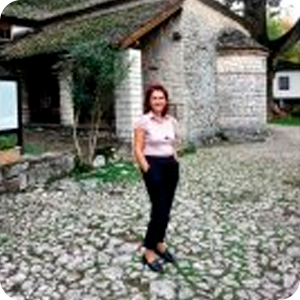The European Union (EU) is playing an increasingly important role in international affairs, facilitating international dialogue and promoting the common interests of member states. It is represented through more than 140 EU Delegations and Offices around the world. These institutions offer various career opportunities for local professionals, from audit, economics, finance and information technology to communication, public administration, external relations, law among others.
EU positions require a variety of skills, including policy analysis, project management, communication, knowledge of several languages and negotiation and there is a great deal of competition in this job market. The number of openings is often limited, requiring significant preparation. However, the career benefits are highly rewarding, and many individuals aspire to land a job there. If you are one of them, check these valuable insights about the application challenges to help you to pave your way to join this important development organization, and what to expect if you do land a job with the EU Delegation.
Key Takeaways:
- Among the major skills and requirements necessary to start a career at the EU Delegation are a strong educational background, multilingual proficiency, strong communication abilities, and knowledge of EU policies.
- One of the most frequent mistakes candidates make during the application process is failing to tailor their CV and cover letter to the job’s requirements.
- Intense competition, multiple application stages, specialized knowledge, and understanding the EU system are among the biggest challenges to winning a position with the EU Delegation.
- The main benefits include professional growth, global impact, networking opportunities, a competitive benefits package, job stability and career progression.
- After landing a job, the main challenges are working within a complex multilateral environment, high expectations and pressure, adapting to diverse cultural contexts, and an intense workload.
- Experts claim that AI will not be effective when preparing a cover letter for a job with the EU Delegation and state that the interview is among the easiest parts of the process.
DevelopmentAid: What major skills and requirements are necessary to start a career at the EU Delegation?

“One of the major missions of EU Delegation is to monitor the EU accession negotiations within the host country in meeting the requirements of the political criteria and to assist with the unfolding of the negotiations. Therefore, the financial aid provided to the host country requires strict management and auditing. In order to overcome such tasks, one must have an analytical mindset and be ready to prepare detailed reports. It is not sufficient just to undertake an overall monitoring and evaluation, but to analyze the current needs of the aid beneficiaries within the host country and make procurement plans to utilize the financial aid provided by EU taxpayers with utmost efficiency and transparency. A service-minded person with very good organizational skills is required.”

“To start a career at the EU Delegation, there are several essential skills and qualifications one should have:
- Educational background: A degree in international relations, political science, law, economics, or a related field is often a basic requirement. Additional specialized studies in EU affairs or public diplomacy can be an asset.
- Multilingual proficiency: Fluency in English is essential, but knowledge of other EU languages (particularly French, German, or Spanish) is highly advantageous, as the EU operates in multiple languages.
- Strong communication skills: Being able to effectively communicate in both written and oral forms is vital. This includes drafting reports, policy documents, and communicating with stakeholders across various cultures.
- Cultural sensitivity and adaptability: Working in a multinational, multicultural environment requires the ability to understand and navigate diverse perspectives, which is crucial in international diplomacy.
- Analytical and critical thinking: The ability to analyze complex issues, synthesize information, and make sound decisions are key to working in an environment that deals with complex global and regional issues.
- Problem solving and initiative: Being proactive in identifying challenges and offering practical solutions is highly valued.

“Starting a career at an EU Delegation, which represents the European Union (EU) in non-EU countries, requires a mix of qualifications, skills, and experiences. These depend on the specific position one is targeting (e.g., policy officer, trade expert, press officer, or administrative support). Some of the major skills and requirements generally are advanced education, language skills, the ability to analyze political, economic, and social developments in the country, drafting detailed reports, policy recommendations, and briefings, organization skills, technical expertise and practical experience.”

“The skills and requirements are similar between EU contracted staff and local staff. These are a higher education diploma, knowledge of at least one or two EU official languages, with English preferably being one of those, and, for local staff, of course, a native level in the local language. Contract staff need to have the nationality of one of the EU member states; dual citizenship with at least one being from an EU country is acceptable. Furthermore, in both cases, there will be a need to have a good understanding of EU institutions, policies, and instruments, in particular linked to external aid. In addition, both categories of staff will need to be proficient in IT tools, as many instruments will be developed in-house to manage finances and projects. To meet all the possible requirements, candidates will need to bring some technical competence in one or more areas that are the focus of external aid: good governance, civil society, public finance, environment, energy, infrastructure, agriculture, etc.”

“I believe two things are very important: a good command of foreign languages (certainly English and French, but much depends on the assignment delegation) and the challenge with yourself to face an experience that is far from your own “comfort zone”. Having been the first skill already tested during the selection phase, I would stress the second point, which could be a first-time experience far from family, friends, habits, and personal taste. My advice would be to embrace the concept beautifully expressed by a famous Italian essayist and intellectual who wrote: “Travelling doesn’t just mean crossing the other side of the border, but also discovering that you are always on the other side”. A mental and cultural approach, therefore, is key to entry into the country, before entry into the EU Delegation, where alongside expats from all over Europe, there are local agents who are permanently on duty there and will be able to help you with a soft landing in the traditions, the customs and mentality of their country: a human channel that will remain alive in you and in them. A few key words: commitment, flexibility and kindness. With these tools, in addition to the desire to learn a lot, you will not have obstacles to your growth, as a person and as an EU professional.”
See also: Your CV for donor-funded projects: EuropeAid format
DevelopmentAid: What are the challenges to be faced when applying for a position at the EU Delegation?

“First, before submitting their application, candidates should carefully check whether they meet all the eligibility criteria in order to avoid automatic exclusion from the selection procedure. The application requires a letter of motivation of a maximum of two pages. This is the most important part of the application. The motivation letter must reflect the candidate’s writing skills as well as his/her experience. AI does not work here, sorry. An up-to-date Curriculum Vitae (CV), preferably using the Europass format must strictly underline all the job requirements. If your letter of motivation and CV pass the evaluation, the interview part is generally the easiest.”

“Applying for a position at the EU Delegation can be competitive, and candidates face several challenges:
- Highly competitive selection process: Many positions at the EU Delegation attract numerous applications from highly qualified candidates across the globe. It is crucial to stand out with a well-crafted CV and application that highlights the relevant skills and experience.
- Rigorous eligibility criteria: The EU Delegation often has strict eligibility requirements, such as specific academic qualifications, professional experience, and language skills. It is important to ensure that you meet all the criteria before applying.
- Complex and detailed application forms: The application process for the EU Delegation can involve multiple stages, including long and detailed forms, written exercises, and a series of interviews. Ensuring that your application is clear, concise, and tailored to the specific position is crucial.
- Understanding the EU system: Familiarity with the EU’s structure, policies, and priorities is necessary. Candidates who can demonstrate a deep understanding of the EU’s role on the global stage and the specific focus of the EU Delegation will have a competitive advantage.”

“One of the biggest challenges is the high level of competition: the high number of applicants, while there are only a few openings. Among others, I would highlight:
- Detailed applications: Often applications require a tailored CV and motivational letter emphasizing specific skills and experience relevant to the role
- Multiple stages: The selection process often involves written tests, interviews, and possibly an assessment center, all of which demand preparation and adaptability
- Specialized knowledge: Candidates must demonstrate expertise in the specific domain (e.g., trade, development, diplomacy) and show familiarity with EU policies and institutional frameworks.
- Understanding EU culture and adapting to cultural diversity: Candidates need to show an understanding of the EU’s values, work culture, and diplomatic protocols, which may be challenging for those without prior experience in EU-related roles.
- Limited insider knowledge: Without strong networks in EU institutions or prior experience in EU delegations or related organizations, it can be harder to stand out. Building connections and networking is vital but challenging for external candidates who are unfamiliar with EU Delegation processes.
- Sometimes there is lack of transparency. Applicants often receive little/no feedback about their performance during the selection process, making it hard to identify areas for improvement.
- Unclear criteria: Even though job descriptions are provided, sometimes specific qualifications or skills seem unclear.”

“While contract agents are encouraged to move between various postings after a few years, local staff generally stay in place as long as there is mutual interest in pursuing the working relationship. As a consequence, there are many places where very few vacancies are open to local staff. There is an overall pressure on EU institutions to do more for less, and that has an impact on vacancies and staffing. However, the impact on officials is much more serious than the one on local and contract staff, and important increases in budget allocations, or the emergence of many specialized positions, could lead to new vacancies.”

“The first thing to consider is that the competition is very strong, and it can be difficult to overcome this on the first attempt. However, if you have a strong and persistent interest in a career with the EU, you should never let yourself be discouraged by any initial difficulties. Although no professional experience is required to apply for this high-level internship programme (JPD), preference is given to applicants with up to 4 years of relevant professional experience. Therefore, in addition to showing great interest and motivation in working in an EU Delegation, try to gain as much preliminary experience as possible, either professionally or through extra-curricular activities such as volunteering or publications: all of this can offer an important advantage. As an alternative, you can apply for a selection process through EPSO and, if you are placed on the Reserve List, you will be eligible for an EU job in one of the EU institutions. Becoming an AD or AST level European official means a permanent employment contract.”
DevelopmentAid: How do you prepare for an interview at the EU Delegation?

“One must focus on the preparation of a “motivation letter” rather than the interview. If an applicant is called for an interview, 70% of the application is already within the favor of the applicant because the applications are evaluated mainly based on the information provided within the CV and motivation letter. Under no circumstances should one present a false statement within a CV, as previous experiences, problem-solving skills within those experiences, and the overall context of the projects previously worked on will be questioned in detail within the interview. One must also know the current economical and political developments within the host country if the job requirements are related to monitoring and evaluation tasks.”

“Preparing for an interview at the EU Delegation requires both specific knowledge and a clear understanding of how to present yourself as a suitable candidate. Here are some key steps:
- Research the EU Delegation: Understand its core functions, current priorities, and its role in the country where the delegation is based. Be prepared to discuss how your skills and experiences align with its objectives.
- Understand the EU’s key policies and current affairs: Stay up to date on EU foreign policy, international trade agreements, and global events that the EU is involved in. Being able to discuss these topics intelligently will show that you are well-prepared and informed.
- Prepare for behavioral and technical questions: Expect questions about your past experiences and how these relate to the job you are applying for. The EU Delegation places great emphasis on the ability to work in a multicultural and multi-lingual environment, so expect to demonstrate this in your answers.
- Demonstrate diplomacy skills: As a representative of the EU, you’ll need to show that you can handle sensitive situations with tact and professionalism. Highlight instances in your career when you managed complex or delicate issues diplomatically.
- Be clear about your motivation: Be prepared to explain why you want to work at the EU Delegation specifically, and what you hope to contribute to its mission. Show genuine enthusiasm for the role and its challenges.”

“Understand the role: Review the job description and identify the key responsibilities and qualifications required. Highlight the specific skills, experience, and knowledge that you need to demonstrate.
- Learn about the EU Delegation: Understand the mission of EU Delegations: representing the EU, promoting its interests, and working on policies such as trade, development, and political cooperation. Research the delegation’s activities in the host country, including projects, partnerships, and ongoing challenges.
- Familiarize yourself with the broader EU policies relevant to the role, such as the Common Foreign and Security Policy (CFSP), trade agreements, or development programs.
- Study EU policies and institutions: Update knowledge of the EU’s structure, key institutions (e.g., European Commission, EEAS, European Parliament), and decision-making processes. Focus on EU external action policies, as these are often central to the delegation’s work.
- Highlight relevant competencies: Cultural sensitivity and diplomacy: provide examples of adapting to diverse cultures or resolving cross-cultural misunderstandings. Analytical thinking: demonstrate the ability to analyze and summarize complex political, economic, or social issues. Communication skills: Practice explaining EU policies or initiatives clearly and diplomatically. Multilingual proficiency: If applicable, should demonstrate the language skills.
- Prepare the personal schema: Create a concise introduction summarizing your professional background, skills, and interest in the role. Explain how your experience aligns with the EU Delegation’s mission and the specific role.
- Review practical and current issues: Host country context: understand the political, economic, and social situation of the host country and how the EU is involved. EU and Global Issues: be aware of current EU priorities, such as climate change, human rights, trade relations, or global security challenges.
- Wear formal business attire to reflect the professionalism expected in diplomatic settings.”

“As for any job interview, it is important to research in advance the position that is available. You need to be able to check what is expected of you in terms of work, technical proficiency, language and experience. A standard interview will usually take about 30 minutes, each candidate being given the same set of questions. After an introduction of the members of the panel, the candidate is asked to briefly introduce himself, after which various questions are asked by different panel members. Most are rather open questions, allowing the candidate to show not only his knowledge, but also his/her capacity to express himself in a coherent, concise and logical way. In most cases, one question will be asked in the candidate’s native language, or in the language of the posting. Finally, the candidate will have the opportunity to ask a question or request clarification from the panel. This is an important moment to try to differentiate yourself from the other good candidates. Asking for some info on the number of colleagues working in the contracts and finance section, or the number of projects you will be charged to manage are positive questions showing your interest in the concrete position. In some difficult positions other questions may be more relevant, there is no single best solution to this issue.”

“I think it is important to bring out the enthusiasm and willingness to learn, to know, to get in touch with new cultures. Nevertheless, I would stress the importance of showing sensitivity toward the role (and the many difficulties) of an EU Delegation anywhere in the world; so to say, the “political” relationship between the EU and the specific country of assignment, although you cannot know where you will be assigned if you pass the selection. Your efforts should therefore be directed towards the study of European policies and the cooperation instruments used by the EU in its international relations with third countries in a broad sense: this could help.”
DevelopmentAid: What are some mistakes that young professionals make when applying for a position at the EU Delegation?

“The EU Delegation requires experience in fieldwork; even it is not explicitly stated in the job announcement. It will not be an easy task for one to start their career journey with the EU Delegation, because the outputs demanded by the missions and general experience required in the field of EU financial aids are a barrier for even seasoned applicants. So, one must have previous experience in EU financed projects within the host country. Since there will be lots of reporting, report drafting skills in English and the host country language is also important. These reports are formal, diplomatic and proof-based, with legal terms. Therefore, a young professional may only apply for office management and secretariat vacancies.”

“Common mistakes that young professionals often make include:
- Generic applications: A generic CV or cover letter that doesn’t clearly demonstrate how your skills and experiences align with the specific requirements of the position can damage your chances. Tailoring your application to the role is crucial.
- Lack of EU knowledge: Applicants who fail to show a deep understanding of the EU’s role in global affairs or the specific work of the delegation may seem ill-prepared. Demonstrating a clear knowledge of EU institutions and policies is vital.
- Overlooking the importance of languages: The EU operates in a multilingual environment, so a lack of proficiency in additional languages can be a major drawback, particularly for certain roles. Always highlight your language skills, and if possible, improve your proficiency in key EU languages.
- Underestimating the interview process: Some candidates fail to adequately prepare for the rigorous interview process, including behavioral and situational questions. It’s important to practice responses that demonstrate your relevant skills and experiences.
- Lack of soft skills: While technical knowledge is important, the EU Delegation values soft skills such as teamwork, cultural sensitivity, and flexibility. Neglecting to highlight these qualities in your application or interview can be a missed opportunity.”

“Young professionals often face unique challenges when applying for positions at EU Delegations due to their limited experience or unfamiliarity with the application process. Some common mistakes:
- Submitting generic applications: Using a one-size-fits-all CV and cover letter that doesn’t address the specific requirements of the position or the mission of the EU Delegation.
- Underestimating the importance of EU knowledge: Failing to show an understanding of EU institutions, policies, or the specific role of EU Delegations in external relations.
- Overemphasizing academic achievements: Focusing excessively on academic qualifications without demonstrating practical, real-world skills or experience.
- Failing to prepare for the interview: Arriving unprepared for interview questions about the EU’s role, the delegation’s mission, or the host country’s context.”

“Young professionals who arrive with no practical experience of working in a foreign posting can be prone to be overly confident that extended study and a large number of internships are an asset for a first real job. This could be negatively assessed. Furthermore, in an environment where around 20% of the staff is made of EU officials and the rest is more or less evenly balanced between local staff and EU contract staff, human qualities and the ability to work with people from very different nationalities, experiences and culture is a strong asset that will be evaluated during the interview.”

“Probably the worst mistake you can make in this type of career is about expectations. Living abroad, sometimes very far from your place of origin, as mentioned, involves sacrifices that are not always fully compensated. You should leave with the knowledge that adapting to a new lifestyle, even if you are young and love the multi-cultural dimension, may in the long run be less easy than you think. Moreover, in general, these feelings begin to be felt after an initial period that is characterized by great enthusiasm for the many novelties that await you. Counterbalancing the side of this negative reverb is a crucial exercise for “surviving” difficulties and discouragements. Therefore, maintaining a high level of interest in discovering the country of assignment, in its all aspects, studying thoroughly the relationship between that specific reality and the contribution that the EU seeks to give through projects, initiatives, and the best practice wishes to establish, are strongly suggested exercises.”
DevelopmentAid: What are the main challenges and benefits of working for the EU Delegation?

“Working with the EU Delegation is a privilege, similar to working with an ambassador in an embassy. Besides the privilege, if one can secure their position and provide solid outputs, the job will be a long-term one, since the experts in EU Delegation within a host country are limited and one becomes a “scarce resource”. The challenges in working with the EU Delegation is the frequent monitoring visits to aid beneficiaries, if of course the job is not related to general office work or IT. It is also important to note that knowledge of the IT tools used in EU institutions (ARES, MIPS, Sysper2, Syslog, etc.) is also required. So, one must have solid computer and office tools proficiency. One must develop a sense of initiative, autonomy and hands-on approach, as well as a capacity to assure quality, speed and accuracy in performing complex tasks in a multicultural environment.”

“Working for the EU Delegation comes with both challenges and rewarding benefits:
Challenges:
- High expectations and pressure: The EU Delegation is responsible for representing the EU’s interests abroad, which can involve high levels of scrutiny and pressure. The work can be demanding, with tight deadlines and complex issues to address.
- Complexity of diplomacy: Navigating international relations and balancing the interests of the EU with local concerns can be challenging. Professionals at the EU Delegation must be able to manage diplomatic relations with care and sensitivity.
- Political sensitivity: As the EU Delegation operates in diverse political environments, employees must remain politically neutral while still advocating for the EU’s priorities. This can be a delicate balance to maintain.
Benefits:
- Global impact: Working for the EU Delegation allows you to be part of an organization that shapes global policy and influences important international decisions, making it a rewarding and meaningful career choice.
- Multicultural environment: The EU Delegation offers a truly international workplace, where you collaborate with colleagues from various countries and cultures. This provides an enriching professional and personal experience.
- Career development opportunities: The EU offers numerous training and career development programs for its employees. Working at the EU Delegation can open doors to a wide range of career paths within EU institutions and other international organizations.
- Work-life balance: While the job can be demanding, many employees appreciate the EU’s commitment to ensuring a good work-life balance, with flexible working arrangements and an emphasis on employee well-being.”

“Working for an EU Delegation offers unique opportunities and challenges, given the institution’s global reach, diplomatic nature, and the complexity of its operations. Below are the main challenges and benefits of working for an EU Delegation:
Main challenges:
- Complex multilateral environment: navigating the complexity of EU external relations policies and balancing the interests of 27 EU member states while working in a host country with its own political, economic, and cultural dynamics. Diplomacy requires tact, negotiation, and a deep understanding of both EU and local perspectives to build consensus and maintain relationships.
- High expectations and accountability: delivering high-quality results under tight deadlines while considering and referring to EU regulations, financial controls, and project management standards. The role demands precision, efficiency, and adaptability, especially in politically sensitive or resource-constrained environments.
- Adapting to diverse cultural contexts: working effectively in a host country with unfamiliar cultural, social, or political norms, which can differ significantly from EU practices, while the success depends on cultural sensitivity, flexibility, and the ability to build trust with local stakeholders.
- Intensive workload: managing a heavy workload that includes policy analysis, stakeholder engagement, project oversight, and reporting. The workload often involves multitasking and prioritizing under pressure, leaving little room for error.
Main Benefits:
- Professional growth: exposure to diverse fields such as diplomacy, international trade, development cooperation, human rights, and more. This diversity enhances the skill set and provides valuable experience for advancing careers in international organizations or government.
- Global impact: contributing to meaningful initiatives such as poverty reduction, environmental protection, human rights advocacy, and conflict resolution. The work directly aligns with making a positive difference in the host country and globally.
- Networking opportunities: collaborating with EU institutions, member states, local governments, international organizations, and civil society groups contribute to building connections which can open doors to future opportunities and enrich the professional network.
- Competitive benefits package: EU Delegations typically offer attractive salaries, benefits, and allowances, including healthcare, education support for children, and relocation assistance. The package provides financial stability and support for international living.
- Job stability and career progression: the EU is a prestigious employer offering opportunities for advancement within its institutions or through secondments to other roles. A position with an EU Delegation can serve as a trampoline for a long-term career in diplomacy or international development.”

“One of the challenges of work in an EU Delegation is linked to the workload, and its periodicity during the year. As staffing is not always adequate, the workload can sometimes feel very significant, in particular for certain categories of personnel. For instance, contract and finance staff will have a huge workload as the calendar year ends in order to be able to close as many tenders, contracts and reports as possible before the Delegation closes for the holidays. Political staff may be swamped by requests for reports in case of major events, be they political or natural (elections and unrest following them, terrorist attacks, natural disasters and so on). Very short notice requests coming from HQ may seem difficult to cope with and there is no overtime, or easy path to career improvements, even for the best performers. Increases in grade, resulting in salary raises, are complex and take time, as resources for those career progression are limited due to budget constraints. On the other hand, salaries are regularly updated, due to inflation, and are compared on a yearly basis, for local staff, to a basket of salaries paid to local staff by other international institutions. Finally, one needs to reflect on the superb work experience that can be gained by both categories of staff due to the interest of the work, the melting pot that is each EU delegation, and its evolution in time, as every 4 years on average EU officials change, and based on their nationality, their management methods also change. The possibility of seeing high-level visitors, Commissioners, Ministers, EU Presidents is invaluable for a future professional life.”

“The experience of working in an EU Delegation is unique and unrepeatable: the relationship with the country is constantly changing, both for political reasons and because of changes in the geo-political and economic scenarios of reference of each country. The effectiveness of the activities and projects undertaken must be verified on the spot by means of appropriate indicators. And yet, this will help to increase your sensitivity in conducting increasingly focused analyses on the right choice between the available tools and the results you want to achieve: a balance that is always challenging but of fundamental importance to assess. A great responsibility indeed that will serve anyway to train European officials to be extremely aware and professional, able to analyse in depth every operational reality you would engage with during your career with the EU.”
After reviewing the insights shared by international development experts, candidates who feel confident about their chances of securing a job with the European Delegation can benefit from DevelopmentAid’s resources and tools to stand out from the competition. With the Individual Professional Membership, members gain access to a range of opportunities, including assignments listed on the EU Delegation pages. Additionally, members enjoy full access to tenders and grants for individuals, contact information for over 300,000 organizations in international development, and enhanced visibility for their profiles.

